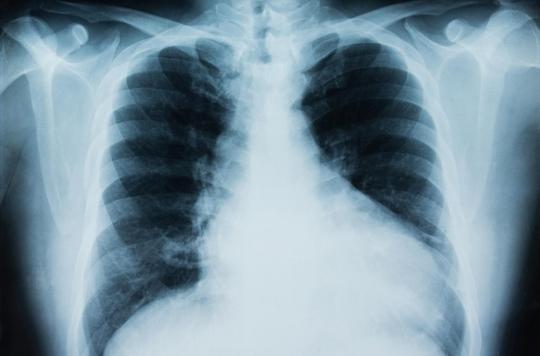Liquid biopsies have made it possible to precisely follow the responses to treatment of 28 patients suffering from lung cancer. Overall, this could be detected four weeks earlier than with imaging and much more precisely.

Two clinical studies demonstrated that liquid biopsies can accurately track responses to lung cancer treatment by measuring the complementary DNA (or cDNA) of tumors during immunotherapy and related treatments.
When a tumor is present in the body, it releases pieces of its genetic material as well as some tumor cells into the blood. These elements carry a large amount of information accessible initially through a simple blood test, hence the name “liquid biopsy”, including specific mutations indicating the presence of cancer cells*.
Avoid ineffective treatments
“There is a clinical need for non-invasive, real-time detection of tumor response to treatments,” said Victor Velculescu, study author and researcher at Johns Hopkins Kimmel Cancer Center. “Our studies suggest that tests using blood samples will change the way cancer patients are treated. This will help assess therapeutic responses more quickly and more accurately, while avoiding unnecessary toxicity or ineffective treatments. “, he adds.
The study involved 28 adults with advanced non-small cell lung cancer (NSCLC). Blood samples were taken before the treatments and then at regular intervals thereafter.
In the gray area
As early as the first week after treatment, 16 responding patients had nearly complete clearance of tumor cDNA, which could be detected in their blood samples. Eight patients who did not respond to treatment showed limited changes in cDNA levels and a significantly shorter survival. Overall, patients’ response to treatment could be detected four weeks earlier than with imaging, and much more accurately.
“These results indicate the potential value of early assessment of responses to targeted therapies, especially when CT imaging results fall in the gray zone between objective response and actual disease progression,” says Alessandro Leal, of the Kimmel Cancer Center.
Source: Gustave Roussy.

.















